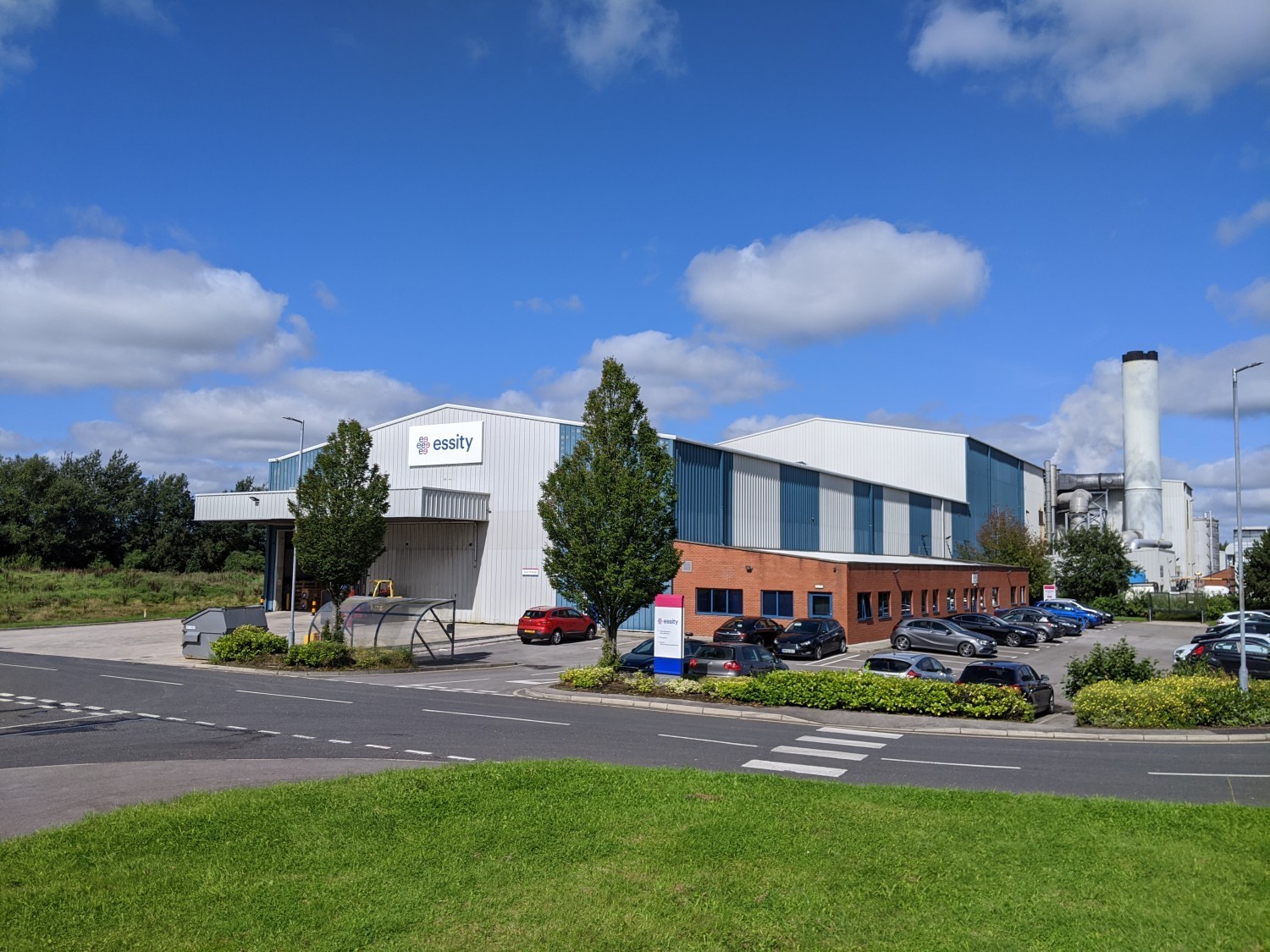The Tawd paper mill in Skelmersdale has secured multi-million-pound government funding to help it become the first production facility of its kind in the country to adopt hydrogen power.
The mill is owned and operated by Swedish firm Essity. It produces giant rolls of paper that are shipped to the company’s other sites around the UK for conversion into finished products that include Cushelle toilet rolls and Plenty kitchen towels.
Essity has secured up to £2.2m to trial hydrogen power as an alternative to natural gas in its manufacturing process.
The funding has been secured through Phase 2 of the UK Government’s £55m Industrial Fuel Switching Competition, as part of the £1bn Net Zero Innovation Portfolio (NZIP).
Should the trial - which will assess feasibility of the green power source - be successful, the technology could be adopted at Tawd Mill on a permanent basis, as well as being rolled out to other Essity sites around the UK including Manchester’s Trafford Park and Oakenholt in North Wales.
Andrew Hearns, who has led the project for Essity, said: "Sustainability is a key part of our global business strategy. We are committed to reducing our own carbon emissions by 35 per cent by 2030 and reaching net zero by 2050.
“If this trial is successful, replacing natural gas with low carbon hydrogen would dramatically reduce CO2 emissions at Tawd and is a major step in the right direction to help us achieve our environmental goals.”

The mill employs 42 people and is adjacent to another Essity site – with a further 215 employees – making finished goods such as Tork professional hygiene products for clients including the NHS, the hospitality sector, shopping centres and sports facilities.
Following a multi-million-pound investment it helped Essity to become the UK’s largest manufacturer of what is known as TAD or through-air-dried tissue paper.
TAD is used to make toilet rolls that are softer and stronger. But the manufacturing process is energy-intensive and the company has been investigating ‘greener’ fuels such as biomethane, electricity and biomass.
Andrew added: "Finding a replacement for the natural gas currently used in paper-making is not easy. But hydrogen has been trialled successfully in one of our German sister plants and we are delighted that the scheme we put forward for this trial in the North West has won major UK government funding."
“The trial will start in 2024 and will involve replacing the burners on the drying equipment to see if they can safely and efficiently use this alternative fuel.”
Funded and monitored by the Department for Energy Security & Net Zero, the project will be led by Essity, in partnership with Progressive Energy Ltd – that has experience in delivering hydrogen demonstrations – and HyNet North West, one of the UK’s leading industrial decarbonisation projects.
Enjoyed this? Read more from Tim Aldred























